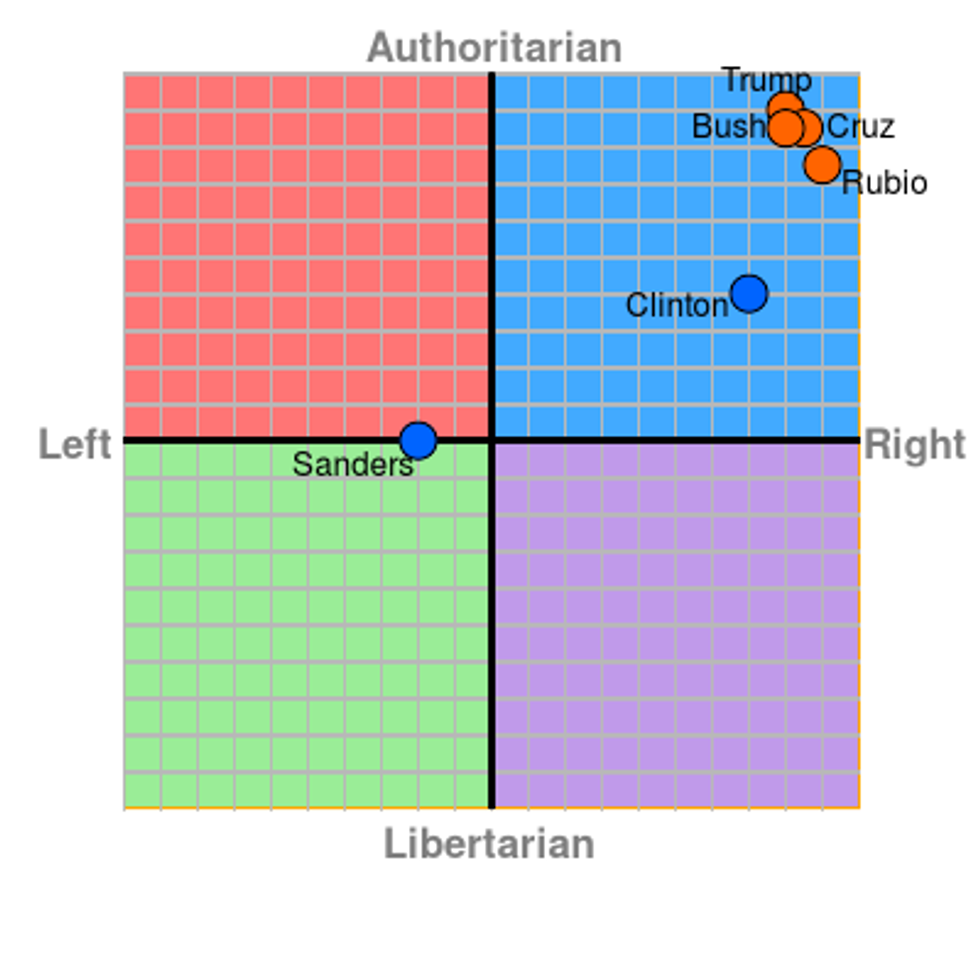For all of my father's life, he has voted for Republicans. His parents were Republicans, he grew up Republican, and he feels he can always trust a Republican. He often ticks the box next to the name with an "(R)" attached to it. He has gone through life trusting conservative ideas and looking at liberals with disdain.
My political upbringing was unlike most. My parents did not try to push an ideology onto me. My mother does not know much about politics other than that she is more apt to agree with a Democrat than a Republican. This leads to many arguments between my parents, so they would not often talk about it in my presence. I had the liberty to explore politics and form beliefs on my own.
Even though my dad never forced his conservative ideals upon me, he gets frustrated with me now that I am so liberal. I always ask him what is so bad about Democrats and why he will never vote for one and he always defaults to "they're liberal." I ask why this is so bad and he never gives a sufficient answer other than citing how Democrats used to be conservative (he fails to understand that this was before he was born).
I get very frustrated with my father because he does not know why he believes what he believes. He is a broken record of, "The rich deserve tax cuts so that their wealth will trickle down," "The Mexicans are stealing our jobs and leeching off welfare," and, "Why don't we just bomb ISIS and wipe them off the map?" Despite my rebuttals, he does not understand that income inequality in the United States is so bad that the middle class is smaller and poorer than it was decades ago, that illegal immigrants make half of the farm industry and they contribute $300 billion to the Social Security Trust Fund, and that carpet-bombing a general idea of where ISIS is would ignore the fact that not all intelligence is accurate and it would kill more innocent people than guilty because ISIS is an amorphous body. His response to me is that I should not believe everything that I read on the Internet. He repeats this mantra when I tell him that televised news media is bought, skewed, and destroyed by corporations.
In George Washington's farewell address, he warned the newly independent American citizens about the adverse effects of political parties. Just as James Madison described factions as causing selfishness and inequality, Washington said that political parties would make administration and government inefficient. Many Americans, like my father, vote against their interests because they are fatally faithful to a political party. Republican voters, who are often older, do not know that many Republicans want to cut Social Security, Medicare, and Medicaid. Democratic voters, who are often young and ravenous for change, do not understand that Democratic politicians often submit to their more aggressive Republican colleagues (see: President Barack Obama). Moreover, people are afraid to vote for third parties because they feel that they are "throwing their vote away."
My problem with voting for someone because of their party is similar to the problem that I have with the electoral college system and "the X vote." People become obsessed with the thing and not the people. "It is so important to 'get' Ohio and Nevada!" "Donald Trump has no chance at getting the 'Latino vote!'" "I will never vote for Bernie Sanders because he is running as a Democrat!" It is like having art for the sake of art and not understanding its meaning. Except, in this case, it is a person with a complex brain who has power over you and who has influence on your government and your life.
"Democrats versus Republicans" is not the only frustrating issue, though. How many people do you think voted for Barack Obama just because he is black, Ted Cruz because he is religious, or Hillary Clinton because she is a woman? Of course, not all voters would do this. Maybe it's not even the majority, but it is so hard for some people to not vote for someone just because they identify with them in the most basic way. People should vote for who they agree with and who they feel will make some change. They should look past gender, race, religion, ethnicity, state, and party alignment. These labels tell little about a person, especially a politician. You must listen to their words, look at their voting record, see who is giving them money (which says almost as much about a politician as their voting record), and do more research than listening to FOX News, CNN, and/or MSNBC. Once we get money out of politics and get past the idea of labels and parties, we can have a more pure, efficient, and legitimate democracy.
Nevertheless, with as polarized and haphazard as the current Republican candidates are, even my father is saying that he would vote for "Bernie Sanders the Socialist" over Donald Trump.




















